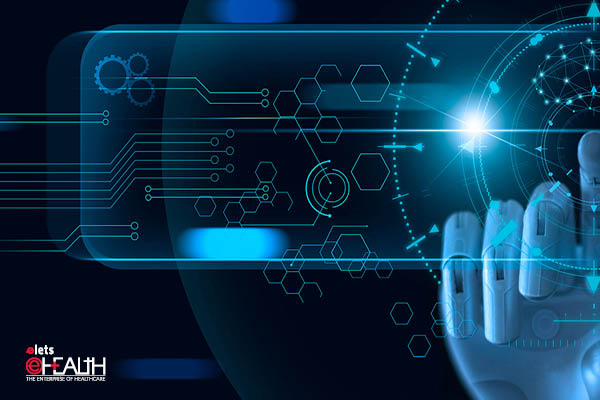
Digital disruptions in healthcare are transforming the industry at an unprecedented pace, revolutionising the way healthcare is delivered, experienced, and managed. From electronic health records to AI-powered diagnostics, telemedicine to precision medicine, technology is reshaping the healthcare ecosystem, improving patient outcomes, and unlocking new possibilities. Embracing these digital disruptions and fostering innovation will be crucial to harness the full potential of technology in healthcare, ultimately creating a future where healthcare is more accessible, efficient, and personalized than ever before.
Given the leaps in technology and the surging demand for optimised healthcare outcomes, the amalgamation of digital solutions is now indispensable. In this context, the 11th Elets Healthcare Innovation Summit and Awards, scheduled to take place on 22-23 June 2023, mark a significant milestone in showcasing the latest trends, ideas, and impactful innovations in digital healthcare. With its track record of ten successful editions, the 11th Elets Healthcare Innovation Summit and Awards promise to be bigger, bolder, and better than ever before, leaving a lasting impact on the healthcare ecosystem and shaping the future of healthcare.

Over the past ten successful editions, the Elets Healthcare Innovation Summit and Awards have consistently demonstrated their significance in the healthcare space by offering key takeaways such as knowledge sharing, networking opportunities, innovation showcases, policy discussions, recognition, and awards, thought leadership, global perspectives, and future oriented discussions.
Each edition has provided a platform for experts and professionals to share their expertise, exchange ideas, and showcase innovative solutions. The events have fostered collaborations, inspired innovation, influenced healthcare policies, and recognised exceptional contributions. The accumulated experiences from the previous editions have solidified the reputation of the summit as a premier platform for shaping the future of healthcare and leaving a lasting impact on the healthcare ecosystem.
THE POWER OF HEALTHCARE INNOVATION SUMMITS

Healthcare innovation summits, such as the upcoming 11th edition, play a vital role in fostering collaboration, sharing knowledge, and accelerating the adoption of digital disruptions in the healthcare landscape. These events bring together government dignitaries, healthcare professionals, technology experts, policymakers, and industry leaders to discuss challenges, explore opportunities, and present groundbreaking solutions. Over the last 10 years, these summits have seen the participation of more than 5,000 attendees, and they continue to attract a growing number of participants in the coming future.
DIGITAL DISRUPTIONS IN HEALTHCARE: FORGING A NEW FRONTIER
In a world brimming with possibilities, healthcare stands on the precipice of a paradigm shift, driven by the remarkable digital disruptions that are rewriting the script of our medical journey. Embarking on this transformative path, we witness a convergence of data, devices, and groundbreaking technologies that challenge traditional norms and unlock a realm of untapped potential.
In the past few years, digital health has become a vital field, transforming our approach to healthcare. Through technological advancements, digital solutions have played a key role in enhancing patient care, optimising healthcare delivery, and promoting overall well-being. Let’s delve into relevant data and recent industry updates that emphasize the importance of digital health.
INCREASING ADOPTION OF TELEMEDICINE
Telemedicine has witnessed exponential growth, especially in light of the COVID-19 pandemic. According to Statista, the telemedicine market is projected to grow at a CAGR of 31 per cent by 2025. This significant surge is driven by the convenience and accessibility it offers to patients, allowing them to consult healthcare professionals remotely. Digital platforms enable virtual appointments, remote monitoring, and quick access to medical advice, reducing the burden on traditional healthcare systems.
WEARABLE DEVICES AND REMOTE MONITORING
Wearable devices, such as smartwatches and fitness trackers, have become increasingly popular among individuals striving to monitor their health and fitness goals. These devices provide real-time data on various parameters, including heart rate, sleep patterns, and physical activity. According to Markets and Markets, the wearable technology is expected to reach USD 265.4 billion by 2026 growing at a CAGR of 18 percent, reflecting the growing interest in self monitoring and preventive healthcare.
Furthermore, remote monitoring solutions have gained traction, particularly for chronic disease management. Patients can now transmit their vital signs and health data to healthcare professionals for continuous monitoring, leading to early detection of complications and proactive interventions.
ARTIFICIAL INTELLIGENCE AND BIG DATA ANALYTICS
Artificial intelligence (AI) and big data analytics have emerged as powerful tools in the field of digital health. AI algorithms can analyse vast amounts of patient data, identify patterns, and generate actionable insights for healthcare providers. By leveraging AI, medical professionals can make more accurate diagnoses, predict disease progression, and personalise treatment plans.
Additionally, big data analytics play a pivotal role in population health management. Aggregating and analysing data from various sources, including electronic health records and social determinants of health, allows healthcare organisations to identify high-risk populations, optimise resource allocation, and develop targeted interventions. The integration of AI and big data analytics has the potential to revolutionise healthcare delivery and enhance patient outcomes on a global scale.
THE ROLE OF MOBILE APPLICATIONS IN HEALTH MANAGEMENT
Mobile applications have transformed the way individuals engage with their health and well-being. The proliferation of health and wellness apps has empowered users to monitor their fitness, track their nutrition, and manage chronic conditions efficiently. These apps offer personalised recommendations, reminders, and educational resources, enabling individuals to take control of their health.
Moreover, mobile apps have facilitated the dissemination of health information and created opportunities for remote patient education. With a simple tap, users can access reputable sources, stay updated with the latest medical breakthroughs, and make informed decisions about their healthcare.
CHALLENGES AND OPPORTUNITIES IN THE DIGITAL HEALTH LANDSCAPE
While digital health presents immense opportunities, it also comes with challenges that need to be addressed for widespread adoption and success. Data privacy and security concerns are paramount, and robust measures must be in place to protect patient information from breaches and unauthorised access. Interoperability and integration among various digital health systems and devices remain a challenge, requiring standardized protocols and frameworks. Compliance with regulatory and legal frameworks is essential to ensure patient safety and maintain ethical standards.
On the other hand, digital health offers opportunities for enhanced healthcare access and equity, empowering healthcare providers with personalised care tools and promoting health monitoring and preventive care. The future of digital healthcare holds immense potential, with advancements in telemedicine, artificial intelligence, personalised solutions, and patient-centric approaches.
INDUSTRY SPEAKS
Urvashi Prasad, Director, Niti Aayog
“Telemedicine and e-health are considered potential solutions for addressing the limited access to healthcare facilities in semi urban, rural, and remote areas, where there is a low presence of doctors. With extensive smartphone penetration and improved mobile connectivity in India, telemedicine has the potential to bridge the healthcare gap. Timely telemedicine consultations can save lives and reduce downstream costs.”
Dr Arjun Dang, Chief Executive Officer, Dr Dang’s Lab
“Artificial Intelligence (AI) and machine learning have the potential to revolutionize healthcare by improving diagnosis and treatment and making healthcare more personalised. AI algorithms can analyse large amounts of medical data and identify patterns that can lead to better diagnosis and treatment. Machine learning algorithms can also learn from the data and improve their accuracy over time.”
Vikram Thaploo, Ceo-telehealth, Apollo Hospitals Enterprises Limited
“The implementation of AI technology in the healthcare sector has the potential to revolutionise patient care by aiding healthcare professionals in diagnosing conditions, suggesting personalised treatment plans, predicting risks, and identifying abnormal results. The integration of intelligent symptom checkers has already gained traction among healthcare providers and organisations. These machine learning-based tools engage patients in a series of targeted questions regarding their symptoms, enabling the system to provide appropriate guidance on seeking further medical care.”
Jatin Mahajan, Secretary – Admi (Association Of Diagnostics Manufacturers Of India), Managing Director – J Mitra & Co., New Delhi
“The future of healthcare will be shaped by these emerging technologies and trends, leading to more efficient, personalised, and accessible care for all. They demonstrate the diverse and rapidly evolving landscape of digital disruptions in healthcare. As these innovations continue to develop, healthcare providers must adapt and embrace these changes to stay competitive and improve patient outcomes.”
LOOKING AHEAD
The realm of digital healthcare holds immense promise for transforming the way we approach medical services and improving patient outcomes. As technology continues to advance at an unprecedented rate, the future of digital healthcare appears both exciting and impactful.
The integration of artificial intelligence and machine learning algorithms has significantly enhanced diagnostic accuracy, empowering healthcare professionals with data-driven insights for more precise and personalised treatment plans. Additionally, the application of big data analytics has allowed researchers to uncover patterns, trends, and potential breakthroughs that were previously hidden, driving innovation and advancing medical knowledge.
Furthermore, digital healthcare has opened up avenues for preventive care and early detection, promoting a shift towards a more proactive and holistic approach to well-being. From wellness apps to virtual coaching, individuals now have the means to take charge of their health and make informed lifestyle choices, ultimately leading to reduced healthcare costs and improved population health.
However, as we embrace this digital revolution, it is crucial to address concerns surrounding data privacy, security, and equitable access to technology. Striking a balance between technological advancements and ethical considerations will be vital in shaping a future where digital healthcare truly benefits all.
Be a part of Elets Collaborative Initiatives. Join Us for Upcoming Events and explore business opportunities. Like us on Facebook , connect with us on LinkedIn and follow us on Twitter , Instagram.












